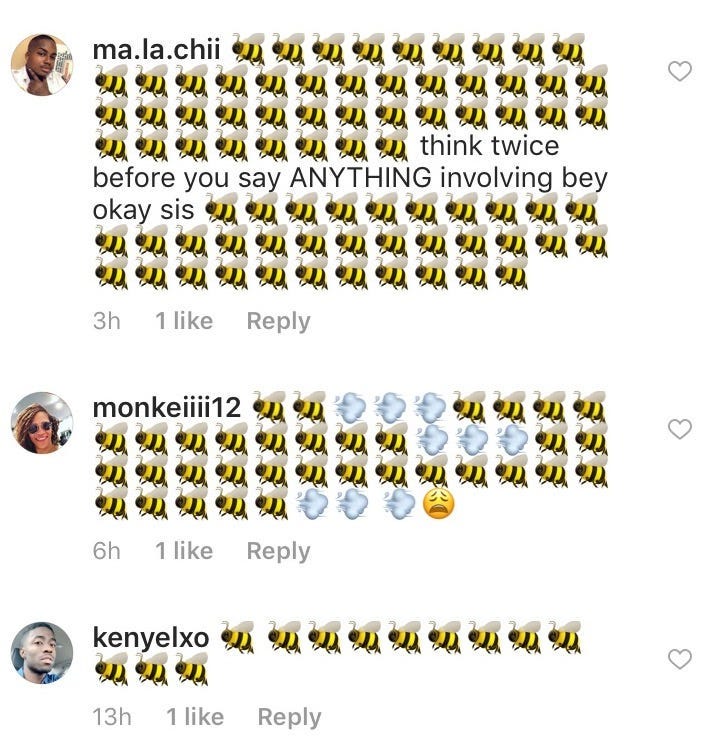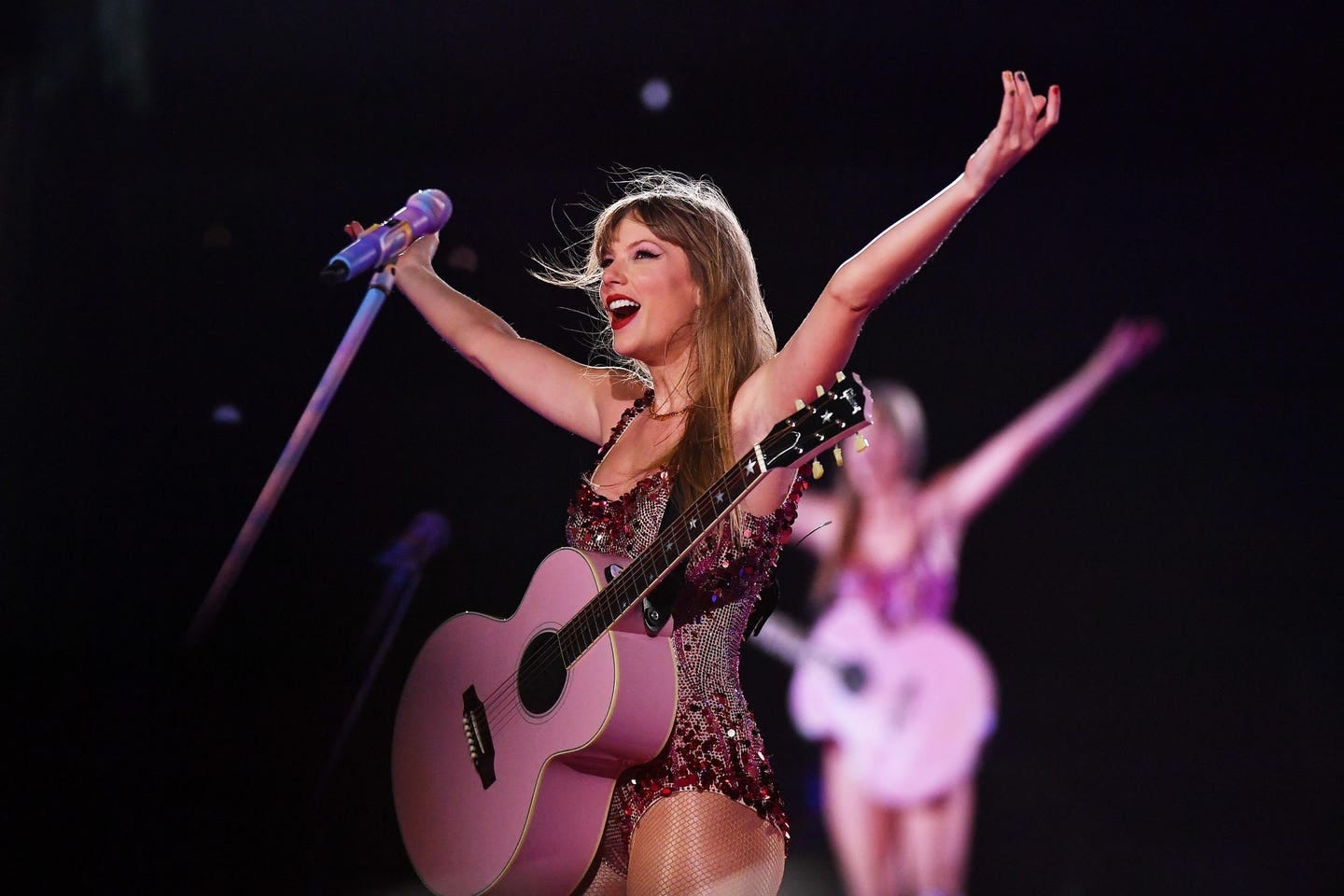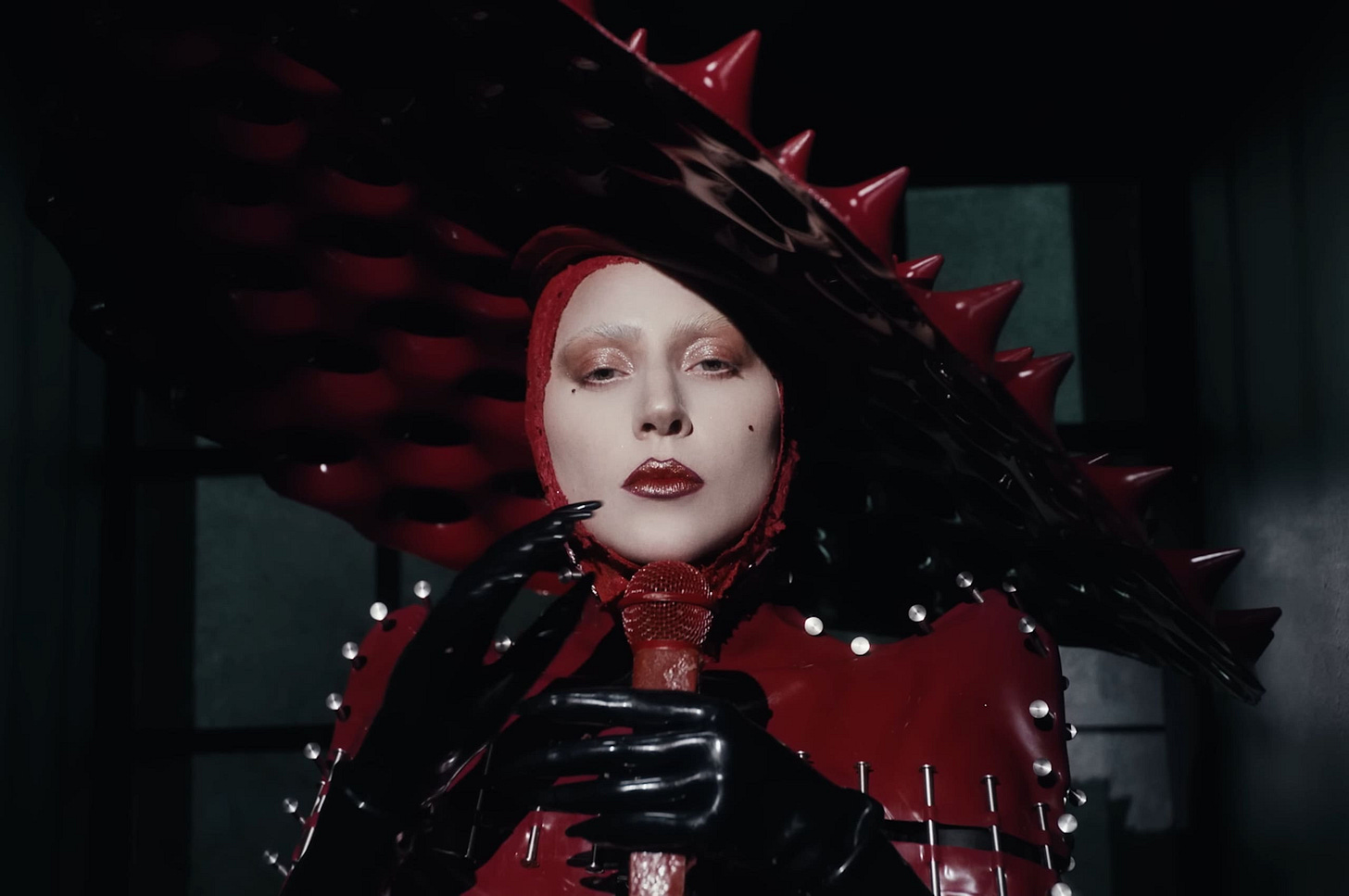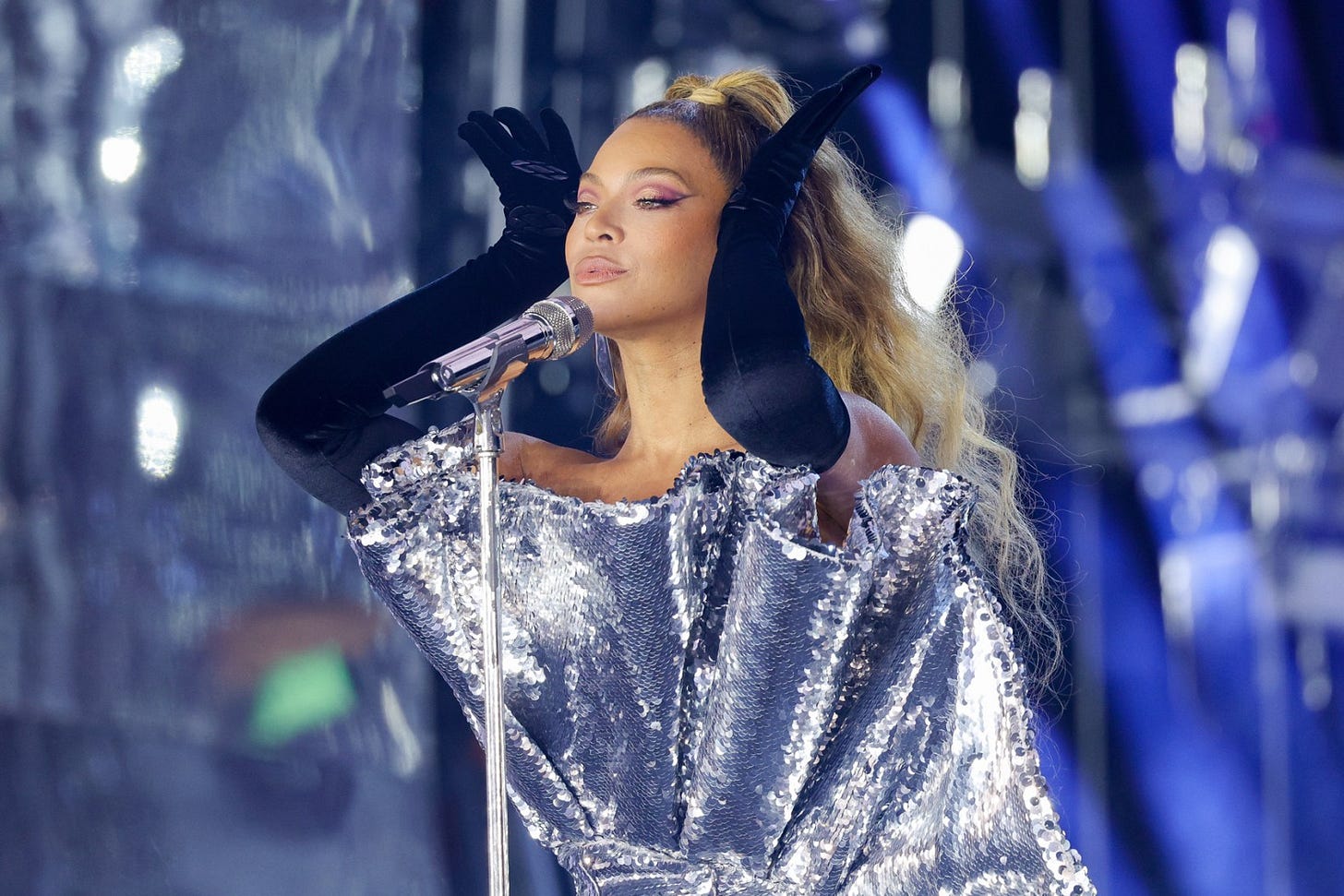The Way We Speak About Female Celebrities Online Matters
An exploration of language, culture, and the misogynistic underbelly of Stan Twitter
In the days of social media’s past, there was a clear delineation between the way people spoke in exclusively online spaces and the language that they carried over with them into the real world. There are significantly fewer examples of “early social media” language bleeding over into the mainstream compared to what we’re seeing today- among these are words like “selfie” and “hashtag,” but the larger majority are acronyms used primarily in online communication (“LOL,” “OMG,” “NSFW,” etc.) As social media has evolved, so has its unique language structure and patterns of speech. As is often the case with language and, more specifically, humor, the past two decades of social media jokes and jabs have built upon one another and resulted in the formation of an entirely new lexicon originating completely in online circles. The origin of this language can be credited in large part to Tumblr users in the early 2010s, many of whom migrated to X (formerly Twitter, as it will be referred to for the purposes of this piece) after the former introduced several rule changes that led users to seek refuge elsewhere. Twitter soon grew to become the mother country of what is known as Stan Twitter, made up of communities of users dedicated to the support and promotion of their favorite artists. Though stan culture is most commonly associated with musicians, there are stan communities that exist for virtually every niche interest you can think of- from movie characters to on-screen couples.
Stan Twitter has all the makings of a peaceful environment where users can bond over their shared appreciation for a particular artist and their work, but it has become something much more sinister. Stans have always been known to viciously defend their “favs”- as one’s Stan Twitter bias is known. Beyoncé’s BeyHive might be the most mainstream example of Stan Twitter bleeding into the real-world; they made headlines in 2016 when Beyoncé released her confessional opus, Lemonade, which addressed her husband’s infidelity. Fans took to Instagram to launch a coordinated comment assault on the alleged other woman, flooding her comments with bee emojis to intimidate her and make their presence known. Nowadays, something like this, which at one time was so extreme that it warranted segments on nightly cable news channels, is most likely happening at any given time in some corner of the internet. Stans have gone from internet oddities to cultural tastemakers, shaping the way online communities interact, speak, and even act offline in some cases.
With this increase in exposure and prominence of stan culture as it slowly earned its place in mainstream celebrity discourse, new linguistic developments have inevitably followed. Namely, the way people speak online- about themselves, their peers, and celebrities- is shifting in real time. As we’ve become increasingly reliant on social media as a society, it should come as no surprise that the number of individuals participating in what we called parasocial relationships continues to increase. According to a study conducted by Thriveworks in 2022, 51% of Americans engage in behavior consistent with a parasocial relationship. Slightly over half (59%) of these individuals are between the ages of 16 and 34- almost the exact same percentage of Twitter users fall into the same age bracket (57.58%). This increasingly parasocial behavior being exhibited online has resulted in a heightened sense of cult-like defensiveness underscoring what was formerly innocent online stan bickering. As users feel closer to the people they follow online, they’ve come to view themselves as protectors of these individuals and extensions of their professional publicity teams, leading to an overfamiliarity that encourages disparaging comments lodged at their favs’ celebrity peers and self-contrived competitiveness that only Stan Twitter users seem to know or care about1.
Earlier this year, I read the brilliant book Wordslut: A Feminist Guide to Taking Back the English Language by Amanda Montell, which expertly described the ways in which language has evolved to systematically discriminate against women. The examples of misogyny outlined in her writing are widespread, ranging from the fact that there are significantly more female-focused expletives to the way language itself is gendered to center maleness as the standard. As Montell illustrates, language continues to evolve every day. Words that originally meant one thing can begin to take on new meanings as time passes, like the example of the word “slut,” which evolved from an innocuous term describing an untidy woman into the ultimate sexist insult. Montell’s book is one of several writings that inspired this piece, and I hope to further develop her findings and apply them to the misogynistic minefield that is Stan Twitter. Another formative inspiration came from Kyle Denis’s Billboard op-ed, “In 2025, Let’s Retire Using Racist Coded Language & Other Problematic Terms to Discuss Music.” His focus was on the racist implications of using phrases like the popular “khia asylum,” and how imperative it is that we acknowledge these harmful relationships. His piece inspired me to take a closer look at some other potentially problematic Stan Twitter words. The language I’m particularly interested in highlighting for the purposes of this piece are certain “nicknames” bestowed upon artists by stans online.
To demonstrate my point, I’ve chosen to highlight three of the most famous female musicians of their generation- Taylor Swift, Lady Gaga, and Beyoncé. Each of these women have cult-like fanbases of their own, but the comments lodged at them by so-called competing fanbases are what truly exemplify the misogyny hidden in plain sight on Stan Twitter. Interactions between users that contain seemingly innocuous nicknames for other artists are a byproduct of the evolution of stan language that has become commonplace on Music Twitter, where chart battles and streaming comparisons occur daily. Similar to how the word “slut” evolved to become a derogatory slur to describe women, each of these musicians have seen their names morphed into an insulting parody that typify three unique facets of misogyny. For each of the artists in questions, the names we’re going to be considering are '“Tayble,” “Collabga,” and “Hasbeyn,” accordingly. If you’ve ever dared to venture into the replies of a PopCrave post, you’d be hard pressed to dodge one or all of these insults. They’ve entered the Stan Twitter lexicon and have been used thousands of times, to the point that fans of the artists have attempted to reclaim them or use them in jest when interacting amongst themselves.
While it may seem trivial to treat these outwardly mindless nicknames as though they are worthy of intellectual consideration, I think that mindset is part of the reason why misogyny has been able to thrive in stan circles. In a world where music journalists are considering an artists’ ability to “reheat their nachos,” it’s impossible to ignore the fact that the Stan Twitter dialect has bled into offline popular culture. If we write off these examples of blatant misogyny as irrelevant to the larger social conversation we allow them to continue to flourish. Stan Twitter is often taken out of the broader conversation because the culprits are not your typical vitriolic insult flingers- oftentimes, the users behind these profiles are gay men. This is not to say that gay men are the only demographic engaging in this behavior, but I would be remiss not to address this fact. LGBTQIA+ individuals face discrimination on a daily basis and are experiencing heightened fears under the current administration. However, that does not take away from the fact that gay men do not experience misogyny, and have instead allowed themselves to become part of the problem. It is imperative that we call out misogyny for what it is in every instance, no matter how miniscule the implications may seem because, as we have seen throughout history, language will continue to evolve whether we’re paying attention or not.
“Tayble”
Taylor Swift is inarguably the most famous person on the planet. You can make any claims you want about the quality of her work or the merits of her success, but you cannot deny her ubiquity. This level of fame is a double-edged sword- while Swift is probably making more money annually than most will ever see over the course of a lifetime, she’s also opening herself up to a level of public scrutiny that has been largely unheard thus far in history. Swift is no stranger to this juxtaposition. She has faced some of the most public examples of misogyny that we’ve seen since the tabloid heyday of the late 90s and early 2000s- her interruption at the VMAs by Kanye West and subsequent nonconsensual nude depiction in the artist’s “Famous” music video, coupled with a leaked phone call scandal that purposely painted Swift in an unfairly negative light, are the two most egregious examples she’s had to face. This history of misogynistic vitriol has made Swift the target of further criticism aimed at her reactions to said occurrences, all of which have culminated in a sort of pariah image for Swift that continues to warrant even more misogyny aimed at the fact that she’s just “too famous” now.
As a result of this rich history of sexist treatment, Swift is kept under close watch by her fans and critics alike. Like most female celebrities, Swift’s body has been fodder for public discussion since her entry into the music industry as a teenager almost two decades ago. It’s hard to pinpoint exactly when the nickname “Tayble” was first introduced as a way to insult her physical appearance, although the official Urban Dictionary Twitter account made a post defining the word in August 2020. The nickname reads exactly like the piece of furniture (“table”) and is an offensive term describing Swift’s slim physical appearance. The aforementioned Urban Dictionary post defines the word as, “The pop singer Taylor Swift whose body looks like a table.” Swift was candid about her past struggles with disordered eating in early 2020, several months before the word’s semi-official definition was posted2. The current usage of the word is rarely in situations that involve Swift’s appearance- like we will see with all three of these nicknames, it has become a de facto replacement for Swift’s name in stan conversations- but its persistence outside of its original context is evidence of the evolution of misogynistic language.
The idea that someone’s body is up for discussion in any way is a textbook example of interpersonal sexism3. This is no doubt a byproduct of the increase in parasocial behavior among internet users in recent years, but female celebrities and their bodies have been a topic of conversation for decades. The advent of social media has allowed for the frequency and volume of these comments to explode, leading to devastating results for the subjects of the abuse. In Swift’s case, this flood of misogynistic commentary contributed to her disordered eating behavior, and Stan Twitter users have weaponized her trauma against her in trivial discussions surrounding streaming figures and album sales. It should go without saying that discussions of someone’s body are sexist and inappropriate- I would venture as far as to say a large majority of the users calling Swift by the nickname would agree with this statement. But, because the sexism has been repackaged as silly stan language, its true impact is dismissed.
“Collabga”
Lady Gaga is a singular artist whose presence in the modern music and film industries has been solidified since her debut in 2008. Gaga’s most notable anthems are all solo endeavors- “Just Dance,” “Poker Face,” “Bad Romance,” “Born This Way,” the list goes on. She is also an artist who values the art of collaboration, and has released some of the most notable duets in recent memory. Her A Star Is Born love theme duet with Bradley Cooper, “Shallow,” both went #1 on the Hot 100 and earned Gaga an Academy Award for Best Original Song. Her COVID anthem “Rain On Me” with Ariana Grande also went #1, and she currently has the longest running #1 song in Global Spotify history with 146 days (and counting), and bagged her sixth Hot 100 #1 hit, with “Die With A Smile",” a duet with Bruno Mars. Despite the fact that Gaga has three additional solo #1 hits and is currently experiencing a commercial re-peak with her new studio album, MAYHEM, the nickname “Collabga” was coined to illustrate the idea that she doesn’t have a viable career without the help of others. More specifically, without the help of men.
The idea that a woman is unable to succeed professionally without the assistance of her male peers is a belief rooted in sexism that dates back centuries4. The misogyny directed at Lady Gaga for the same reason doesn’t date back quite so far, but can be traced back to the “Applause” vs. “Roar” chart battle of 2013. This formative stan chart war established Katy Perry stans as the ultimate enemy of Lady Gaga stans. Today, these same enemy stans are the main ones launching the “Collabga” allegations at Gaga, pointing out the fact that she hasn’t achieved a solo #1 song since “Born This Way” in 2011. What is passed off as infighting between competing pop stans is another example of thinly veiled misogyny at play. The assertion that Lady Gaga requires the assistance of her male peers to succeed is not only sexist and reductive, it is blatantly untrue. Gaga has earned herself several solo hits from each of her respective albums since Born This Way, and earned her Oscar with a team of songwriters that did not even include her duet partner, Bradley Cooper.
Had none of this been true, and had Gaga only achieved chart success with her male duet partners, the idea that she “needs” them to succeed would still be misogynistic. It minimizes her role in the success of each of these duets and attempts to pass off as truth the idea that listeners are only tuning into these tracks because of her partner’s impact. It also reduces nearly two decades of creative output to the few collaborations that have achieved commercial success, ignoring all of the work that went into the image-building that it took to establish Lady Gaga as a respected industry titan. Gaga herself addressed this on her recent appearance on the Las Culturistas podcast, confirming that she finds it inappropriate and disrespectful to attribute her success to her male collaborators- be it producers, songwriters, or vocalists. Female artists, and female professionals more generally, face constant sexism in the workplace and have to fight to be respected for their output. Treating one of the world’s most famous musicians with this type of careless misogyny is indicative of more widespread cultural patterns that continue to plague our society.
“Hasbeyn”
Ageism is one of the most dismissed displays of misogyny, partly due to society’s negative disposition towards elderly people. It may be hard to imagine that someone as untouchable as Beyoncé could fall victim to these petty Stan Twitter insults. As I hope my piece has emphasized so far, these insults are neither petty nor insignificant, and no woman- not even Beyoncé- is protected against misogyny. “Hasbeyn” (pronounced “has-been”) is arguably the most disconnected from reality of the three insults, considering it is based on a premise that has absolutely no truth behind it. In the case of Taylor Swift and Lady Gaga, their corresponding nicknames are rooted in observable traits and quantifiable statistics, however misguided and sexist they may be. As for Beyoncé, the nickname implies that she has somehow fallen out of the larger cultural conversation, which has never been further from the truth than it is today. Beyoncé has reach near-deity status as far as celebrity standing goes; she is revered by the general public and her celebrity peers in equal measure. Her presence in a room alone is enough to generate conversation. There’s only one reason why an insult of this nature would stick- ageism.
Like misogyny more generally, ageism affects nearly all women in professional fields. Studies have found that nearly 80% of women in the workplace experience ageism at some point in their careers, and these numbers are becoming even more pronounced for early-career women under the age of 30. Beyoncé is the oldest of these three women, although it underscores the prevalence of ageism on Stan Twitter by highlighting that a similar nickname, “Fadga,” exists for Lady Gaga. For the purposes of this piece, I’ve decided to focus on “Collabga” to highlight a different type of misogyny, but the fact that another ageist nickname has taken hold is worthy of mention. In Beyoncé’s case, rival stans have directed this criticism at her due to the perceived declining state of her career- an unfounded and nonsensical argument, as we will come to see. Beyoncé has been a staple within the music industry since her introduction in the 90s as part of Destiny’s Child, and has yet to fall from relevance since. She is currently experiencing a career re-peak with the release of acts one and two of her planned album trilogy, 2022’s RENAISSANCE and 2024’s COWBOY CARTER, the latter of which was awarded Album of the Year at the most recent Grammys ceremony, a feat only four Black woman in history have achieved.
A woman’s age is often inappropriately correlated with her performance ability in the workplace, with more mature women being deemed “past their prime,” and younger women being considered unworthy of promotion or accolades due to their perceived inexperience. For centuries, women were considered unfit for the workplace in general, and ageism is a byproduct of this age-old belief that women, especially older women, are not suited for employment. Beyoncé is only 43 years old and, despite performing at a level on par with the beginning of her career, is still viewed by many as “too old.” The majority of Stan Twitter users aren’t actually concerned with Beyoncé’s age- most of our generation’s lasting female artists are over 30 years old, with many of them approaching 40 themselves. Misogyny is so pervasive and internalized in our society that it is embedded into every insult, real or not real, that can potentially be lodged at a woman. Regardless of whether Beyoncé is a “has-been” or not, Stan Twitter has chosen her nickname from a metaphorical grab bag of historically proven misogynistic insults and, because of the prevalence of sexism, it stuck.
If you haven’t noticed yet, none of these nicknames are real words. You won’t find them in a dictionary, and if you say them around a person outside of the Stan Twitter bubble they will undoubtedly look at you as if you’re speaking a foreign language. What I hope to have proven is that just because a word is new or niche doesn’t mean it can be written off as irrelevant. Circling back to one of Montell’s central points, “slut” wasn’t originally a word either. It evolved from Middle English and transformed throughout history, taking on its current meaning along the way. Stan Twitter is a hotbed for new developments in the English language, and its dictionary of terms continues to bleed into the real-world. This is not to say that I expect “Collabga” to enter into anyone’s personal lexicon. Rather, I think these nicknames represent examples of language’s evolutionary potential, and the way misogyny evolves in a corresponding fashion.
Our society is rife with misogyny. It is institutionalized in our systems of government, continues to run rampant in online circles, and is embedded in the language that we use every day. Whether users are consciously aware of the power of their words is up for debate. What cannot be debated is the sexist connotations of these nicknames that have entered the Stan Twitter lexicon, and seem to be here to stay. The way we speak about female celebrities online matters. Our words have impact and contribute to the overall evolution of language. It’s important that all social media users are mindful of the influence of their words, no matter how trivial they may seem. Language has been evolving to discriminate against women for centuries, let’s do our part to reverse some of the damage.
https://www.researchgate.net/profile/Antoinette-Huber-2/publication/363563415_Image-Based_Sexual_Abuse_Online_Communities_and_the_Broader_Misogynistic_Landscape/links/636ac1e3431b1f53007e1269/Image-Based-Sexual-Abuse-Online-Communities-and-the-Broader-Misogynistic-Landscape.pdf
https://variety.com/2020/music/news/taylor-swift-eating-disorder-netflix-documentary-miss-americana-1203478047/
https://www.medicalnewstoday.com/articles/types-of-sexism#internalized
https://cynthiakinyera.medium.com/benevolent-misogyny-6-examples-of-modern-day-sexism-9b5292f9a1b6








amazing work 👏